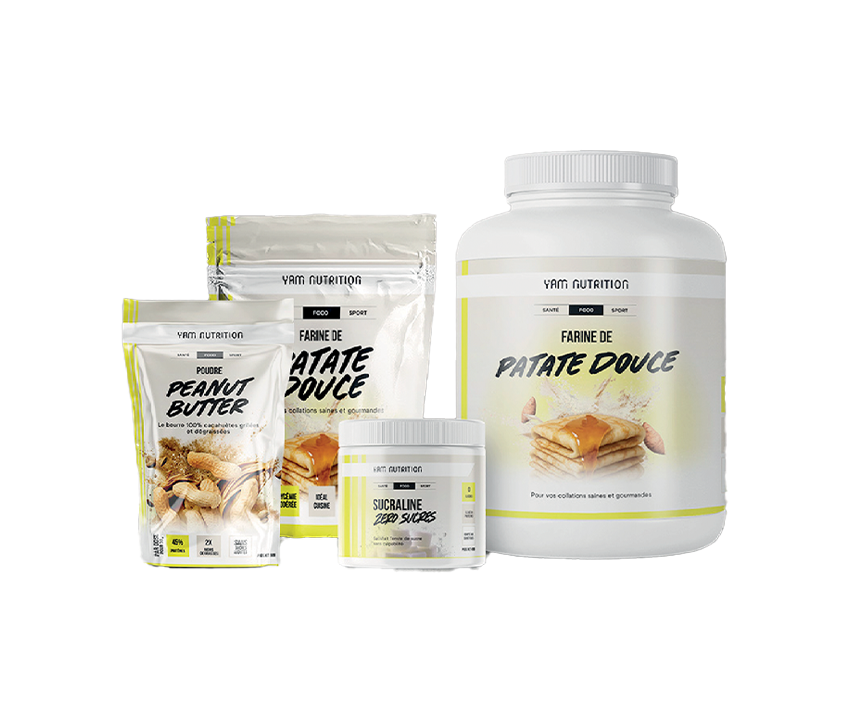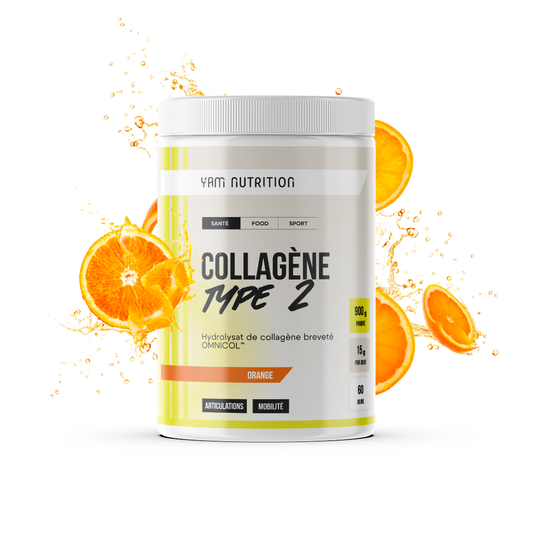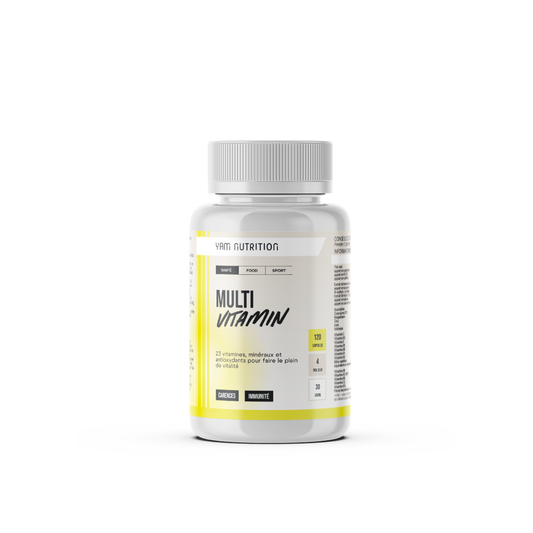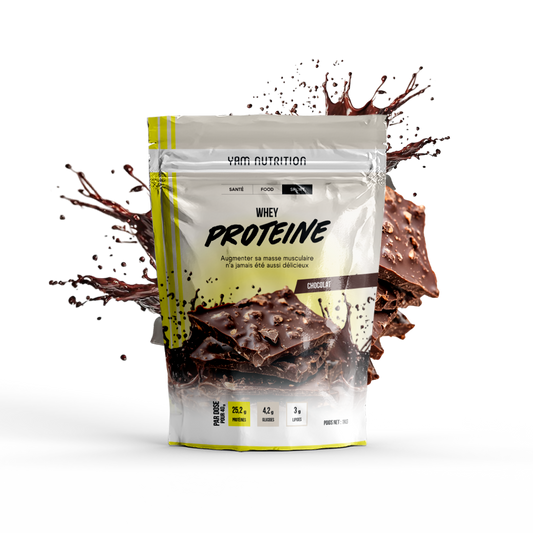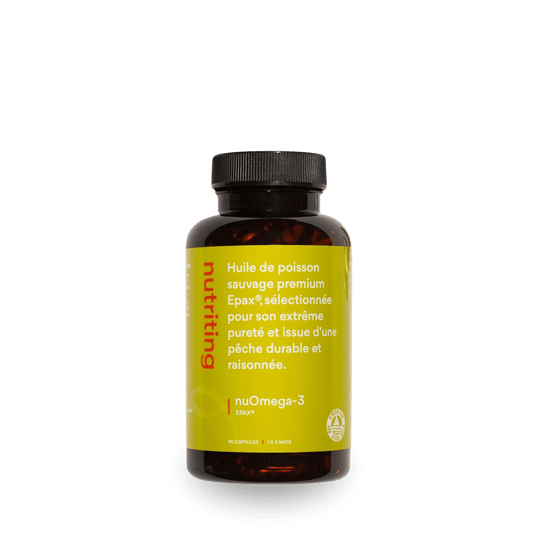Use and definition of food supplements, how to combine them with your diet?

Sommaire
- Definition of dietary supplements: a source of nutrients useful for sports performance and well-being
- A supplement does not replace your diet, it complements it, as its name suggests.
- Functional foods and dietary supplements are specific, beneficial and convenient to use
- Combining food supplements with daily diet
- Taking a food supplement is done according to a health, well-being, longevity or sporting objective.
- Dietary supplements are based on specific formulas that are not obtained through food.
Practicing a sport regularly necessarily requires that you pay attention to your food . It is true that many casual athletes use sport as an excuse to justify eating habits that are harmful to their health (overindulgence in processed foods, saturated fats combined with excess simple sugars or alcohol). However, when sport and bodybuilding become a permanent part of a person's daily life, nutrition changes and athletes then turn to a healthier lifestyle, synonymous with longevity and well-being. A healthy diet combined with regular exercise is the first step towards a more pleasant and harmonious life. If we talk to you about nutritional supplements, what would be the definition of food supplements to give you?
OMNICOL™ Patented Collagen Hydrolysate A complex of 23 vitamins, minerals and antioxidants to boost your vitality Building muscle mass has never been so delicious
Collagen Type 2 Powder
Sale price
49,90 €
Multivitamin
Sale price
29,90 €
Whey Protein
Sale price
From 37,90 €
Let's also say that your longevity also depends largely on your daily physical activity and the nutritional quality of the nutrients you give your body. With this in mind, athletes readily turn to nutritional supplements in order to obtain the nutrients necessary for their metabolism and athletic performance. It is also commonly accepted that the nutritional needs of athletes are generally higher than those of sedentary people. The purpose of this article will therefore be to give you a definition of food supplements , and discuss the ins and outs...
Definition of dietary supplements: a source of nutrients useful for sports performance and well-being
When you get into the habit of exercising or have been training for a long time, you will also try to improve your performance and athletic results. In this context, dietary supplements can provide you with high-quality nutrients, whether macro or micronutrients. Vitamins , minerals, trace elements or proteins can provide you with concrete nutritional support in the context of sport. This is unfortunately all the more true since the quality of current foods leaves something to be desired. Let us add that strength and bodybuilding sports have led most practitioners to supplement with food supplements because they then more reliably get the nutrients they need. Obviously, a protein milkshake will provide you with 30 grams of pure protein for 120 calories, while the food equivalent would certainly provide you with more than 300 calories for a lean, good-quality food. Food supplements are then to be considered as functional foods, which provide you with only what you need. This is why we talk about food supplementation.
A supplement does not replace your diet, it complements it, as its name suggests.
We naturally come to define what a food supplement is, that is to say that it complements a diet supposed to provide the majority of macro and micronutrients necessary for the normal metabolism of human beings, whether sedentary or athletic. By extension, a nutritional supplement is supposed to provide an additional intake of nutrients (macro or micro) to a daily diet which is considered complete, even if this is currently more of a hypothesis than a reality. That being said, the term food supplement is today more frequently used than the second; note, however, the nuance of meaning. Let us add that these are food products intended to provide you with specific nutrients based on a certain concentration.
For example, a 1000 mg vitamin C supplement will provide you with this amount of ascorbic acid in a single capsule, unlike foods that cannot provide you with this much from a single product, fruit or vegetable. In reality, it is highly unlikely that several fruits and vegetables will provide you with this much in a single meal, or even over the course of the day. Then all that remains is to know your dietary micronutrient needs. In fact, a high dose of vitamin C may not be the best example, but let's say that the question of vitamin D is often underestimated. Here too, it is unlikely that your diet will be sufficient to meet your nutritional needs for cholecalciferol. Scientific research has also shown that high amounts of vitamin D of 2000 IU or more would be more likely to meet the actual dietary needs of humans.
Functional foods and dietary supplements are specific, beneficial and convenient to use
Naturally, dietary supplements serve a specific function or purpose. Obviously, you won't find any food containing only 30g of pure protein without any other macronutrient for example. In this perspective, the use of supplements can be defined in terms of health and well-being objectives, muscle mass gain , endurance, definition and drying, to reduce stress or promote athletic performance. To this end, we also understand that beyond this definition of dietary supplements, it must be understood that they are aimed at everyone, sedentary as well as athletes, bodybuilding or endurance. If they are often consumed by athletes, sedentary people will also benefit from nutritional supplements to fill this or that nutritional deficiency, if this is the case.
Combining food supplements with daily diet
If you are sedentary, you are probably less used to taking food supplements than those who practice bodybuilding for example. However, it's never just a matter of habit and interest in your health. As we've seen, by definition, food supplements are intended to complement your daily diet, but not replace it. This wouldn't make any sense. Legally, boxes and bottles even bear the words "Not a substitute for food." While this is entirely true, it's highly unlikely today that your diet is as healthy and varied as we'd like it to be. So how can you combine your food supplements with your diet?
Taking a food supplement is done according to a health, well-being, longevity or sporting objective.
As we have seen, taking dietary supplements will depend on your fitness and health goals. Someone looking to maintain their health, who takes vitamin C and D for example, will not take the same thing as a bodybuilder looking to gain muscle mass, nor in the same way. However, there are common points between the two cases. Thus, micronutrients are taken during meals while nutritional needs between people can vary, even if there is a minimum and maximum daily amount.
Then, for macronutrients, protein powders, gainers and other powdered food supplements, they are taken outside of meals (except for meal replacements) in order to provide an extra calorie intake deemed useful for the goal to be achieved. Thus, whether it is micronutrients or macronutrients, it is obviously a question of knowing how to determine your nutritional needs according to your goals. However, you should always take into account that supplements cannot be taken in place of your diet but that they can usefully complement it. We have already said this, but it is a persistent psychological tendency to believe that a food product can replace food, even in part.
Dietary supplements are based on specific formulas that are not obtained through food.
Then, some dietary supplements may have a specific function that is not possible to achieve with diet. This is the case, for example, with fat burners. These supplements will stimulate calorie loss from a certain combination of stimulants and other nutrients, whereas the caffeine in coffee alone could not do this. Here again, we return to the notion of specific dietary intake with nutritional supplements. Finally, we could say that from a general point of view, outside of a specific objective, the first dietary supplement to take would undoubtedly be the multivitamins , given the rather poor quality of current standard foods. Here too, a little common sense will encourage you to turn to organic food rather than too frequently eating processed foods from supermarkets. Hopefully, this article answers your questions by giving you a good definition of food supplements, food and nutritional supplements...
YAM Nutrition
Eric MALLET
Spécialiste en Nutrition Sportive
